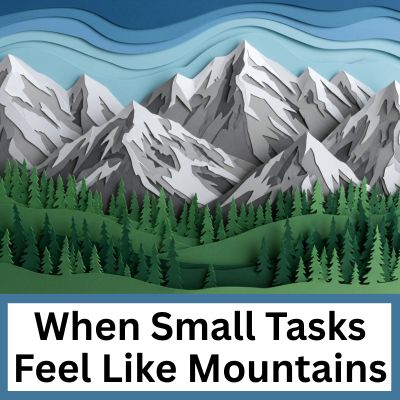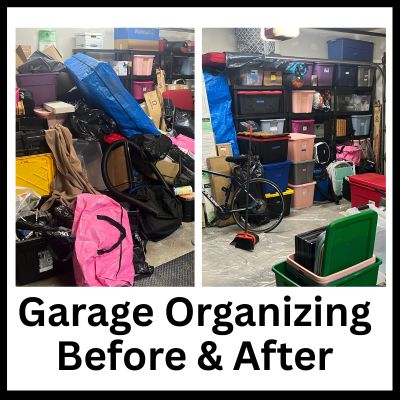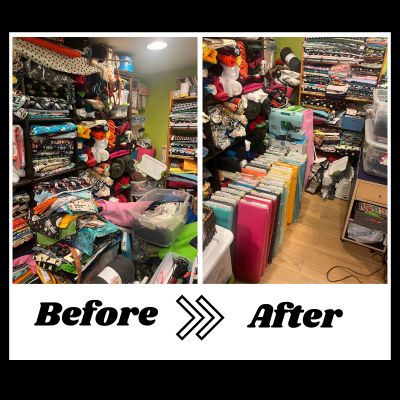Continuing Your Education

My last post was about helping school-aged kids prepare for the start of the school year. As an organizer, I love to help kids and their parents create a system that works for them. What about adults? I firmly believe in the power of continued education. Once graduated from school, whether is be high school, trade school or college, choosing to embark on continued education is incredibly important for a variety of reasons.
- Understand Your Priorities.Taking classes provides structure to your day. Whether it be making time to go to a class, completing assignments, or other class related activities. Continuing your education will require a plan to make sure you have scheduled time for your education venture. Layering in purposeful tasks, which reflect your continuing education pursuit, in your schedule means that you are much less likely to goof off on mindless activities, and then later feel guilty for squandering all that time.
- Boost Emotional Processing and Empathy. In addition to the time component being part of the structure, your thoughts will also have a new structure. Instead of focusing on thoughts that may be distracting, unhelpful, and diminishing, learning new things requires your brain to focus on forward thinking, problem solving, thinking creatively and constructively. For example, say you’re annoyed by the beeping sound of the trash truck and you are taking a writing or public speaking class. Instead of ruminating on the low grade annoyance, you may choose to focus on researching noise pollution, and how sounds can impact our health, positively and negatively. By shifting out of the complaining state to thinking about complaint from a critical and objective viewpoint, it shifts your perspective of being a victim of the annoying sound to really understanding the deeper physiological reasons why the sound is so annoying. By truly analyzing the sound of the trash truck, it’s possible you may even shift to a state of gratitude for the sound:your trash is getting picked up by members of society who truly provide a generous service, and the sound also serves as a warning, so people are less likely to get injured as the truck is backing up. The emotional processing that happens as we work on assignments is incredibly beneficial.
- Keep Your Body and Mind Young. Learning new things often has a snowball effect for inspiration. Once you learn something new, you will likely want to learn something else new. Then, the people you surround yourself with may also catch the bug of wanting to learn more new things, providing an exponential effect of forward thinking. Rather than getting caught up in the cycle of reviewing everything you already know over and over again (ruminating), learning new things breaks this cycle and strengthens the creative thinking part of your brain (prefrontal cortex) rather than the fight or flight center (the amygdala). In my Toastmasters club, we have several older gentleman who have suffered from brain injuries, strokes and dementia. They have all told me that staying current with new ideas and activating your brain is one of the best ways to “stay young”.
- Progress in Life. Increasing your knowledge will help you build confidence, stability and a feeling of accomplishment. If you’re still in the working world, learning new skills will increase your chances for promotion, salary increases, and for flexibility to transition into a new career. For people who are retired, learning new skills may help you provide services to your family members, home improvement, or ability to travel. The possibilities are endless!
- Connect with Others. While we can learn new things on our own by reading a book, watching a video, or tinkering in the garage, the real magic happens when we share these things with others. By being immersed in a community of like minded students, we build a connection and increase our sense of belonging. Real personal development happens when we strengthen our own individual identity while simultaneously connecting with our community.
Now that I’ve illustrated a few benefits of learning and got you hooked on wanting to learn more, here are a few tips on how to make the most of your experience.
- Find a class. What do you want to learn? This could be a weekend workshop through a local business, a semester long in-person training at a community college, a destination camp-like setting, an ongoing weekly meetup (like Toastmasters) or a class through an online school.. Here are a few ideas:
- cooking
- sewing
- glassblowing
- playing an instrument
- writing
- learn a new language
- massage
- motivational interviewing
- graphic design
- public speaking
- painting
- woodworking
- social media marketing
- … the list goes on!
2) Once you have signed up, put it on both a digital and paper calendar. If there are a series of important dates, print those out so you will have the information easily available. Does anything need to get moved around on your schedule to accommodate this new class? Depending on the structure of your course, you may need to create a list for project due dates, and projects that have been completed. By creating a document to see what you need to do and what you’ve already done, it will be easy to track your progress. Who else needs to know about your schedule? What meal prepping or supplies do you need to remember to bring to make your time productive?
3) Organizing your schedule is important, but so is organizing your notes and assignments. Do this by maintaining digital files or if you a “paper person use binders with plastic sheet protects to keep documents and files organized in a way that makes sense to you. Organize your notes and assignments into digital files that make sense to you. If you’re a “paper person”, use binders with plastic sheet protectors to keep documents organized. Store bookmarked websites from your internet browser in a clearly labeled folder so that you can find articles and other resources quickly, and so that you don’t have to keep a million tabs open. Pinterest is a great place to store images for inspiration or reference. You can download a Pinterest button for your browser so that you can save images from all over the web. Google Docs, Dropbox and Evernote are all cloud based services where documents can be stored. Each one has its own benefits and drawbacks, so find one that works for you. Download a scanning app to your smart phone or use the scanner on your printer to save handouts or other paper documents. If you’re new to digital organization, map out where you’ll be storing files with a piece of paper, so your brain can assimilate the new concept. I will do a future post on tips for digital organizing.
4) Carve out time outside of class to study and meet up with classmates or interact online. You may even want to schedule museum visits, trips, or informational interviews to add to your extra-curricular experience.
5) Make sure you have space at home to study. If not, consider bringing study materials to a coffee shop, co-working space or a park to work distraction free.
6) Understand your goals. What do you want to get out of the class? Be sure to think about your goals and intentions for taking the class. Do you just want to participate for entertainment and meeting new people? Or do you want to receive a certificate or other credential? What do you hope to learn? What do you hope to be able to do that you can’t do now? You will feel fulfilled after the class if your goals are clear.
7) Many adult learners have anxieties or insecurities about going back to school. They may feel as though they are not “book smart” or have embarrassing memories from being a student when they were younger. Adults returning to college may feel like they don’t fit in if they are surrounded by a class full of younger “traditional” students. If you have limiting beliefs about what kind of learner you are, or why continuing education isn’t for you, I encourage you to challenge yourself. Apply what you have learned over the years on “how to learn” to the new subjects you want to study.
When it comes to taking classes, learning new things, and taking notes, what has worked the best for you to stay organized? Join our Sparkle Tribe Facebook group and let us know!
Image Credit: David Pennington




